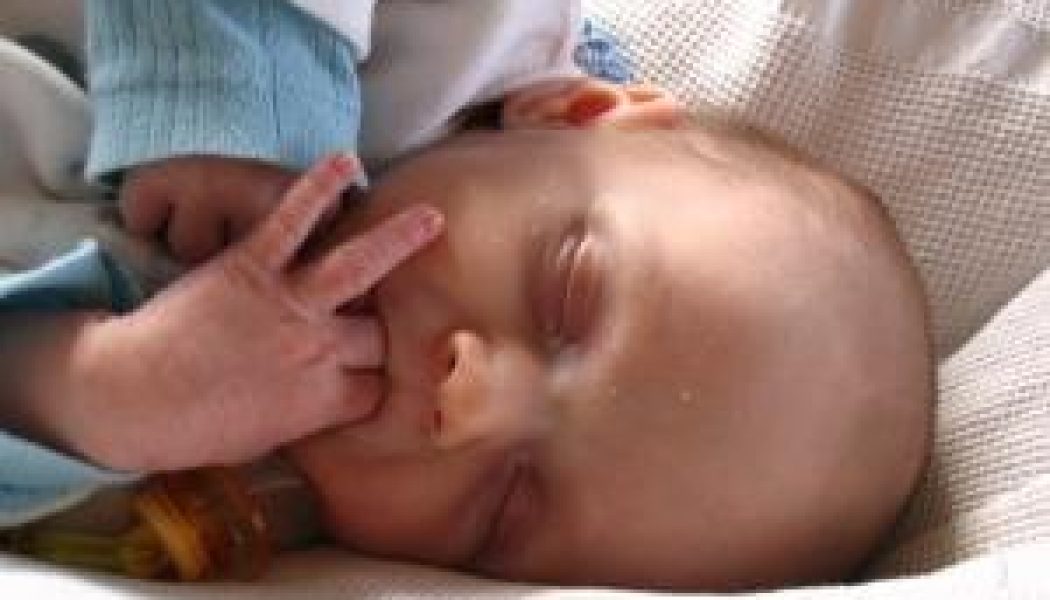
Yes, you read that right. Most of you have probably heard about genetic testing on Down Syndrome Children that results in a very high percentage of them being aborted. The US doesn’t keep great statistics on this but the best research estimated 67% termination rate. In European countries, the termination rate is often over 90%. “Termination rate” here is the medical term: this means a baby is killed in utero after being diagnosed with Down Syndrome. This is a tragedy.
For a while, I’ve been seeing genetic testing drop dramatically in price while research is connecting more and more genes to conditions. We are approaching the terrifying moment that such a practice would move beyond Down Syndrome to other conditions.
I’ve seen this coming for a while. In 2018, I wrote about a company offering to test IVF babies and kill those who were more likely to have a low-IQ. In 2019, I wrote about a gel that would increase a couple’s chances of having a male baby. In January of this year, I wrote about how Chinese researchers were attempting to screen IVF babies to kill those more likely to develop certain behavioral tendencies.
Now, research by a regional health care system has done a large population study on genetic predispositions and psychological conditions. They found genes in nearly 1% of the population. This may be helpful for adults but we Catholics need to fight any attempt to use this in utero tooth and nail.
I’ll cover the research, then summarize Catholic teaching on this.
Geisinger’s Genetic Research
Geisinger, a Pennsylvania health provider got a bunch of patients’ DNA in a program called MyCode. A local paper reported, “Nearly one percent of the over 250,000 MyCode participants have a DNA change that is linked to learning disorders, the autism spectrum, epilepsy, or various psychiatric illnesses. By analyzing health record data, the research team discovered that up to 70% of these individuals had a related clinical symptom documented, but most were unaware of the underlying genetic diagnosis.”
The initial idea of screening adults seems like a decent idea. I am autistic and almost certain I have genes for it. Knowing about these genes, in general, helps me out as a kind of confirmation of my diagnosis. For those who are not diagnosed, it might be an initiative to consider a possible diagnosis. The researchers noted a generally positive response from adults regarding their own genetic test results.
One of the researchers, Karen E. Wain, noted, “These DNA results are likely to have had a large impact on health and wellbeing throughout life for these individuals.” If it is lifelong, the idea that testing move as early as possible. They do not specifically talk about prenatal genetic testing but that seems like an obvious extension in current medical ethics. If prenatal testing happens, it is inevitable some of these babies will be aborted based on those tests.
Wain also noted, “It is important to know how people feel about these results, for themselves and their family, so we can ensure they have access to their genetic information with appropriate support.” This adds in a different level of talking to one’s family, which takes it beyond the privacy of HIPAA.
Public knowledge of genetic tendencies often has negative effects. A 1997 Wired article mentioned the small Greek village of Orchemenos where a high number were sickle cell carriers. Carrying one copy is harmless but if you have two copies (25% of children if both parents are carriers) you get sickle cell anemia. So, researchers went and tested the townsfolk for this variant, hoping carriers and noncarriers would marry avoiding anyone with sickle cell anemia. “The noncarriers, however, refused to cooperate. Even though the gene was harmless on its own, carriers became stigmatized and noncarriers refused to marry them. In the end, the carriers became a shunned subclass who were forced to marry among themselves.”
Catholic Teaching on Genetic Screening
Obviously, abortion is always wrong. The Catechism (2271) makes this abundantly clear: “Since the first century the Church has affirmed the moral evil of every procured abortion. This teaching has not changed and remains unchangeable. Direct abortion, that is to say, abortion willed either as an end or a means, is gravely contrary to the moral law.”
However, when abortion is done for reasons of eliminating a specific condition like Down syndrome, autism, or epilepsy, there is an added evil of eugenics. Pope Francis has spoken about this on at least two occasions.
Pope Francis referred to aborting disabled children in June 2018, saying: “I’ve heard that it’s fashionable, or at least usual, that when in the first few months of pregnancy they do studies to see if the child is healthy or has something, the first offer is: let’s send it away.”
In this speech, Pope Francis pulls no punches, comparing this practice to Nazism: “the murder of children…to get a peaceful life an innocent [person] is sent away…We do the same as the Nazis to maintain the purity of the race, but with white gloves.” He then notes, “It’s an atrocity but we do the same thing.”
In April 2020, Pope Francis was answering a question about how countries could show respect for human life in their coronavirus response. He jumps to the throwaway culture pointing to abortion of babies with Down syndrome as a prime example:
In the world of finance it has seemed normal to sacrifice [people], to practice a politics of the throwaway culture, from the beginning to the end of life. I’m thinking, for example, of prenatal selection. It’s very unusual these days to meet Down’s Syndrome people on the street; when the tomograph [scan] detects them, they are binned. It’s a culture of euthanasia, either legal or covert, in which the elderly are given medication but only up to a point.
On top of Pope Francis, right after condemning abortion, the Catechism (2276) notes that we need to help the disabled live well: “Those whose lives are diminished or weakened deserve special respect. Sick or handicapped persons should be helped to lead lives as normal as possible.” This paragraph starts the section on euthanasia. The eugenic abortions based on prenatal tests would be both euthanasia and abortion at the same time.
I hope that situations like this can help forge cooperation between pro-life and disability rights groups who could be great allies on this and euthanasia.
Let’s fight for the disabled in our fight against abortion. When a baby is aborted based on prenatal diagnosis, it is doubly wrong. We Catholics must stand up against his throwaway culture.
Notes:
- Please support me on Patreon so I can keep writing articles like this.
- I’ll be mainly offline the next few weeks.








